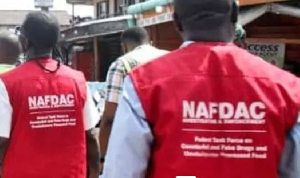NGOs and Civil Society Organisations in Ghana needs an independent regulatory body
With the proliferation of thousands of NGOs and Civil Society Organisations (CSOs); some with questionable motives or aims and objectives; it about time all meaning campaigners and supporters of NGOs and Civil Society Organisations (CSOs) advocated for the creation of an independent regulatory body to control the activities of NGOs and CSOs in Ghana.
The independent regulatory body will be expected to streamline the activities of all NGOs and CSOs to ensure their operations are not only accountable and transparent, but also in conformity with the laws of Ghana.
There are growing demands and agitations for the NGOs and CSOs, to be more accountable for the use of charitable funding or funds received. This stems from the growing feeling or perception from the tabloid media and other stakeholders in Ghana and donor countries or organisations outside Ghana; that charity funds are not either properly managed and accounted for or are being misappropriated due to corruption.
In the last decade with the influx NGOs and also with proliferation of CSOs, in Ghana, these organisations have been in the media spotlight with various accusations of wrong doing which includes financial mismanagement, lack of proper governance structures and accountability. The Ghanaian media, the Ghanaian public and financial donors to the NGO and Civil Society sector in Ghana, therefore have become sceptical about giving out funds to the so-called NGOs and CSOs. This is because it is believed that funds to the NGOs/CSOs have and continue not to be reaching their intended beneficiaries.
In other parts of the world there are established independent regulatory bodies for charitable organisations or activities. The UK that had experienced similar problems with charitable organisations or activities in several decades back had to react or respond. And in 1993 an act of Parliament was passed to establish an independent regulatory body known as the Charity Commission.
The Charity Commission is an independent regulator of charities in England and Wales. Its aim is to provide the best possible regulation of charities in England and Wales in order to increase charities effectiveness, public trust and confidence. Most charities must register with the Commission, although some special types of the charity do not have to register.
There are over 168,500 registered charities in England and Wales. In Scotland the framework is different. The Charity Commission does not only ensure proper governance, financial management and accountability within charities but also provide a range of advice and guidance to charities and their trustees’, and can often help with problems.
Since the establishment of the Charity Commission as the regulatory body for charities in England and Wales it has had to continuingly react to these issues of lack of transparency and financial management by adopting or introducing stricter regulations and financial management and reporting systems that enforces transparency and financial accountability in the Charity sector.
The Government and the Parliament of Ghana in my view urgently needs to move towards divorcing the supervisory role of NGOs and CSOs in Ghana from the Department of Social Welfare, to an independent body devoid of partisan politics or government through a legislative instrument.
The NGO/CSOs sector in Ghana is said to have been in existence several decades and is now considered the formidable “Third Sector” contributing significantly to the Ghanaian economy; and that the need for an independent regulator free from government control and party politics to ensure proper governance, financial management and accountability, has not been a new debate in the NGO/CSOs sector in Ghana.
My contribution to this debate now in an election year, is to galvanise support from within the NGOs/CSOs in Ghana and outside to lobby the political parties and parliamentary candidates, to endorse in their respective manifestos their willingness through an Act of Parliament, the establishment of an independent regulatory body for NGOs/CSOs in Ghana.
David Atugiya
The author is a Human Rights and Social Justice Campaigner, Finance and Management Consultant; Specialist in NGO and Millennium Awards Fellow.
Opinions of Saturday, 17 March 2012
Columnist: Atugiya, David














